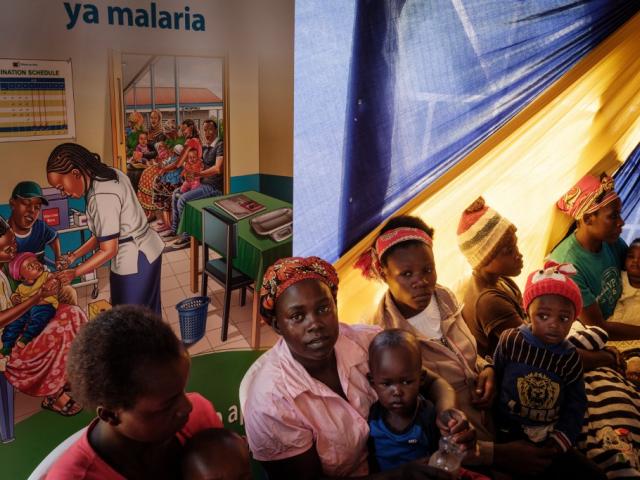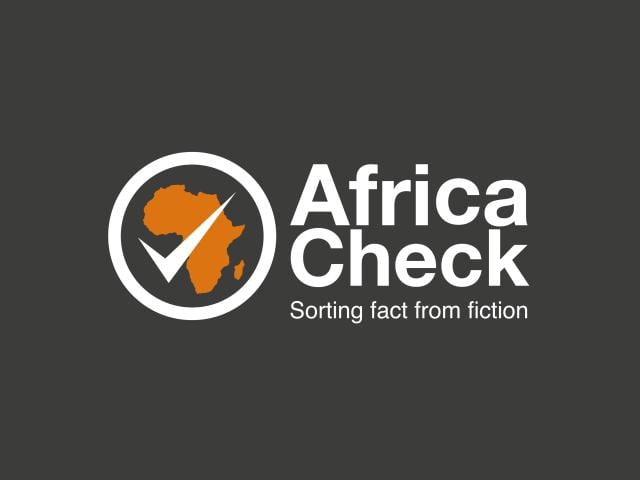The ginger plant grows all year, with its underground stem used as a spice in food and as medicine. It is thought to be native to southeast Asia but is widely grown elsewhere.
While some studies document ginger’s medicinal value in humans and animals, experts say it should only be recommended as a cure for specific diseases after it has been tested in clinical trials.
Still, claims that various mixtures containing ginger can cure diseases and conditions such as arthritis, malaria and high blood pressure continue to spread online, not least in Nigeria.
Their advocates present it as a wonder plant. Adverts that promise cure at little cost are everywhere – claims that resonate with many Nigerians who cannot afford basic healthcare.
But are the claims true? We asked medical experts about five popular ginger remedies that we came across in our work this year.
1. Herbal cure for arthritis?
Ginger cures arthritis, according to messages shared on Facebook. One is partly written in the Yoruba language mainly spoken in southwestern Nigeria.
Arthritis causes pain, swelling and stiffness in the joints. The most common types are osteoarthritis and rheumatoid arthritis.
The message lists ginger, garlic, grapes, lime and honey as the ingredients. It also provides a link to a web article that also claims the remedy works.
The website claims to be “Africa’s No 1 herbal medicine shop”.
But there is no scientific basis that the mixture can cure arthritis, John Onuminya, a professor of orthopaedics and traumatology at Ambrose Alli University in southern Nigeria’s Edo state, told Africa Check.
“There are many causes of arthritis so it is impossible to claim one treatment addresses the cause,” he said. ‘The major complaint of those who have arthritis is pain, and there is nothing in this combination of ingredients that addresses pain.”
Onuminya added that the only plausible way this mixture could ease the symptoms of a patient with arthritis would be through the placebo effect – the pain was only reduced by the patient’s belief that the remedy would work, even though the remedy actually did nothing.
He urged patients with arthritis to consult a doctor.
2. Ginger mixture a ‘solution’ for high blood pressure?
Do you need a “natural solution” for high blood pressure? Then mix ginger, lemon and garlic in hot water and drink the mixture twice a day, according to a Facebook post that also claimed results could be seen in a month.
Using CrowdTangle, Meta’s public insights tool, we traced this claim to a vague-looking website.
High or raised blood pressure, known as hypertension, is a condition where the blood vessels have persistently raised pressure. Untreated, it can increase the risk of serious ailments such as heart, brain and kidney disease.
Health experts recommend lifestyle changes such as a healthy diet that limits salt and alcohol as some ways to control the condition.
Advising people to treat high blood pressure with this mixture was wrong, Patrick Igbigbi, a human anatomy professor at Nigeria’s Delta State University, told Africa Check.
“There is no single solution to high blood pressure. Most times, we advise anyone battling high blood pressure to change their diet and lifestyle. These are effective in managing high blood pressure,” he said.
“Lemon, ginger, and garlic are not a remedy for high blood pressure. The mixture won’t work. Go to a hospital if you feel unwell and follow the medical advice prescribed by a doctor.”
3. And recurring malaria? Ginger won’t cure that either
“Remedy for reoccurring malaria,” read the headline of a January 2021 Facebook post shared by other pages.
The message claims that a mixture of extracts from bitter leaves, lemongrass and ginger cures recurring malaria or relapses of the disease.
“Wash the three ingredients thoroughly and cook for about twenty minutes. Allow it to cool down. Drink a glass thrice daily for a week,” it reads.
Malaria is caused by the plasmodium parasite, which enters the body via mosquito bites. According to the World Malaria Report of 2020, more than 400,000 people died of malaria in 2019, with 23% of them being in Nigeria.
But there isn’t peer-reviewed scientific evidence that this mixture can treat malaria, Okon Essien, professor of medicine at the University of Calabar, southern Nigeria, told Africa Check.
“I don’t prescribe this, and I cannot attest to its efficacy. There are certified and tested medications for treating malaria. They are available and affordable,” Essien said.
He advised people who suspected they might have malaria to go to a hospital, for a proper diagnosis to “rule out any possibility that they might be suffering from another ailment or disease”.
4. Does this ‘total cure’ for low sperm count really work?
Another ginger mixture, which includes bitter kola powder, honey and water, was advertised as a “total cure” for low or no sperm count.
The claim was also posted by other health remedy pages on Facebook and on a health and wellness website.
Low sperm count, also called oligospermia, is when the sperm per millilitre of semen is fewer than 15 million while azoospermia is there is no sperm in a man’s ejaculate. Known causes include hormonal problems, a blockage along the reproductive tract, ejaculation problems, or issues with testicular function or structure.
Sulyman Alege Kuranga, professor of urology at the faculty of clinical sciences at the University of Ilorin in north-central Nigeria, said the claim was incorrect.
Kuranga said there were several causes of low sperm count and azoospermia and so the treatment for each case would depend on the cause.
“There is no scientific evidence to support this claim. If an infection is causing the low sperm count, we treat the infection and that may help,” he said.
He added that the safest option was for patients to see a specialist who could prescribe the right treatment options after assessment.
5. Ginger mixture won’t detoxify the liver
Ginger is also included in mixtures that supposedly purge the liver of toxins and fat. The mixture in question is made of garlic, ginger, and olive oil.
The liver is an important organ in the body that helps remove waste products. It stores nutrients, and filters and processes chemicals from food, alcohol and medicines.
“There is no such thing as purging the liver. The liver is the natural body detoxifier,” Jacob Awobusuyi, a professor of medicine at the Lagos State University, told Africa Check. He said the claim lacked a scientific basis.
And Aihanuwa Eregie, a professor of medicine and endocrinology at the University of Benin in southern Nigeria, said “the liver breaks down toxins, such as alcohol and medication, and some of the other things we consume in excess”.
Eregie warned against taking any remedy claimed to detoxify the liver, as it could be harmful. She urged people to adopt healthy lifestyles that help protect the important organ.
Conclusion: Ginger cures should be interrogated scientifically first, says expert
Though the use of mixtures including plants such as ginger as remedies is acceptable in ethnopharmacology, there is a need for them to undergo global standard procedures before they are recommended, Paul Nwafor, a professor of pharmacology and toxicology at the University of Uyo, told Africa Check.
Ethnopharmacology studies natural medicines derived from plants and other substances.
“The problems with natural products are dosage and toxicity,” Nwafor said. “We subject all our natural products to international standard procedures before they are approved for use. You can’t say a particular mixture works without evidence.






Add new comment